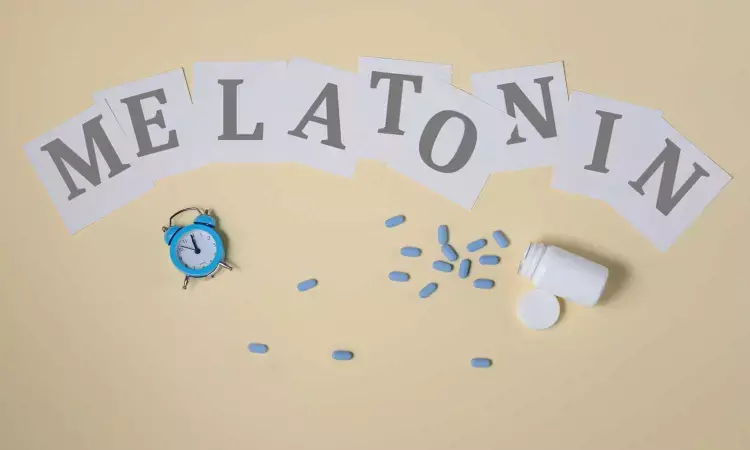- Home
- Medical news & Guidelines
- Anesthesiology
- Cardiology and CTVS
- Critical Care
- Dentistry
- Dermatology
- Diabetes and Endocrinology
- ENT
- Gastroenterology
- Medicine
- Nephrology
- Neurology
- Obstretics-Gynaecology
- Oncology
- Ophthalmology
- Orthopaedics
- Pediatrics-Neonatology
- Psychiatry
- Pulmonology
- Radiology
- Surgery
- Urology
- Laboratory Medicine
- Diet
- Nursing
- Paramedical
- Physiotherapy
- Health news
- Fact Check
- Bone Health Fact Check
- Brain Health Fact Check
- Cancer Related Fact Check
- Child Care Fact Check
- Dental and oral health fact check
- Diabetes and metabolic health fact check
- Diet and Nutrition Fact Check
- Eye and ENT Care Fact Check
- Fitness fact check
- Gut health fact check
- Heart health fact check
- Kidney health fact check
- Medical education fact check
- Men's health fact check
- Respiratory fact check
- Skin and hair care fact check
- Vaccine and Immunization fact check
- Women's health fact check
- AYUSH
- State News
- Andaman and Nicobar Islands
- Andhra Pradesh
- Arunachal Pradesh
- Assam
- Bihar
- Chandigarh
- Chattisgarh
- Dadra and Nagar Haveli
- Daman and Diu
- Delhi
- Goa
- Gujarat
- Haryana
- Himachal Pradesh
- Jammu & Kashmir
- Jharkhand
- Karnataka
- Kerala
- Ladakh
- Lakshadweep
- Madhya Pradesh
- Maharashtra
- Manipur
- Meghalaya
- Mizoram
- Nagaland
- Odisha
- Puducherry
- Punjab
- Rajasthan
- Sikkim
- Tamil Nadu
- Telangana
- Tripura
- Uttar Pradesh
- Uttrakhand
- West Bengal
- Medical Education
- Industry
Melatonin improves sleep but fails to impact increased insulin resistance in night shift workers

A recent randomized, placebo-controlled study aimed to assess the impact of melatonin administration on glucose tolerance, insulin resistance, sleep quality, and circadian profiles in rotating night shift workers. The findings shed light on the role of melatonin in enhancing sleep quality but indicate limited effects on insulin resistance in this specific group. This study was published in Pharmacological Research journal by Hannemann J. and colleagues.
The study, conducted over 12 weeks with a subsequent 12-week wash-out period, enrolled 24 rotating night shift workers who received 2 mg of sustained-release melatonin or placebo. A unique aspect of this trial was the timing of melatonin administration, aligning with the participants' shift schedules, either at night or in the morning. Researchers compared these night shift (NS) workers with 12 healthy non-night shift (NNS) controls to evaluate baseline profiles.
At the outset, the night shift workers displayed impaired indices of insulin resistance compared to non-night shift workers (p < 0.05). Interestingly, there were no differences noted in oral glucose tolerance tests or in the diurnal profiles of melatonin, cortisol, or blood pressure between the two groups. However, sleep quality was significantly impaired in night shift workers compared to non-night shift workers at baseline (p < 0.001).
Despite the promising improvement in sleep quality observed with melatonin administration, which was significantly impaired in night shift workers initially, the 12-week treatment did not yield significant improvements in insulin resistance. Furthermore, melatonin did not significantly impact diurnal blood pressure or the profiles of melatonin and cortisol among the night shift workers.
Researchers highlighted the study's important findings. While melatonin administration notably improved sleep quality in rotating night shift workers, it did not lead to significant improvements in insulin resistance after the 12-week treatment.
These results indicate the complexities of addressing the challenges faced by night shift workers, emphasizing the need for further research into interventions that effectively mitigate the adverse metabolic effects associated with shift work.
Reference:
Hannemann, J., Laing, A., Middleton, B., Schwedhelm, E., Marx, N., Federici, M., Kastner, M., Skene, D. J., & Böger, R. Effect of oral melatonin treatment on insulin resistance and diurnal blood pressure variability in night shift workers. A double-blind, randomized, placebo-controlled study. Pharmacological Research: The Official Journal of the Italian Pharmacological Society,2024;199(107011):107011. https://doi.org/10.1016/j.phrs.2023.107011
Dr Riya Dave has completed dentistry from Gujarat University in 2022. She is a dentist and accomplished medical and scientific writer known for her commitment to bridging the gap between clinical expertise and accessible healthcare information. She has been actively involved in writing blogs related to health and wellness.
Dr Kamal Kant Kohli-MBBS, DTCD- a chest specialist with more than 30 years of practice and a flair for writing clinical articles, Dr Kamal Kant Kohli joined Medical Dialogues as a Chief Editor of Medical News. Besides writing articles, as an editor, he proofreads and verifies all the medical content published on Medical Dialogues including those coming from journals, studies,medical conferences,guidelines etc. Email: drkohli@medicaldialogues.in. Contact no. 011-43720751


